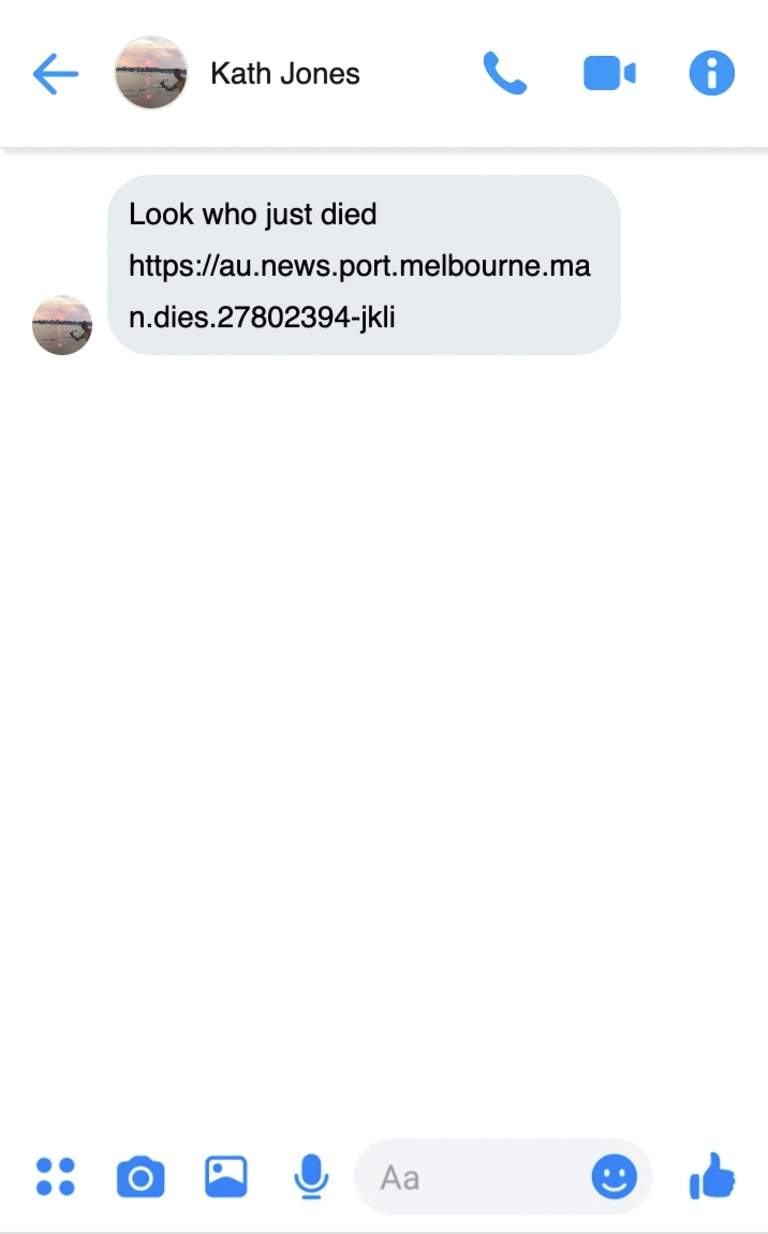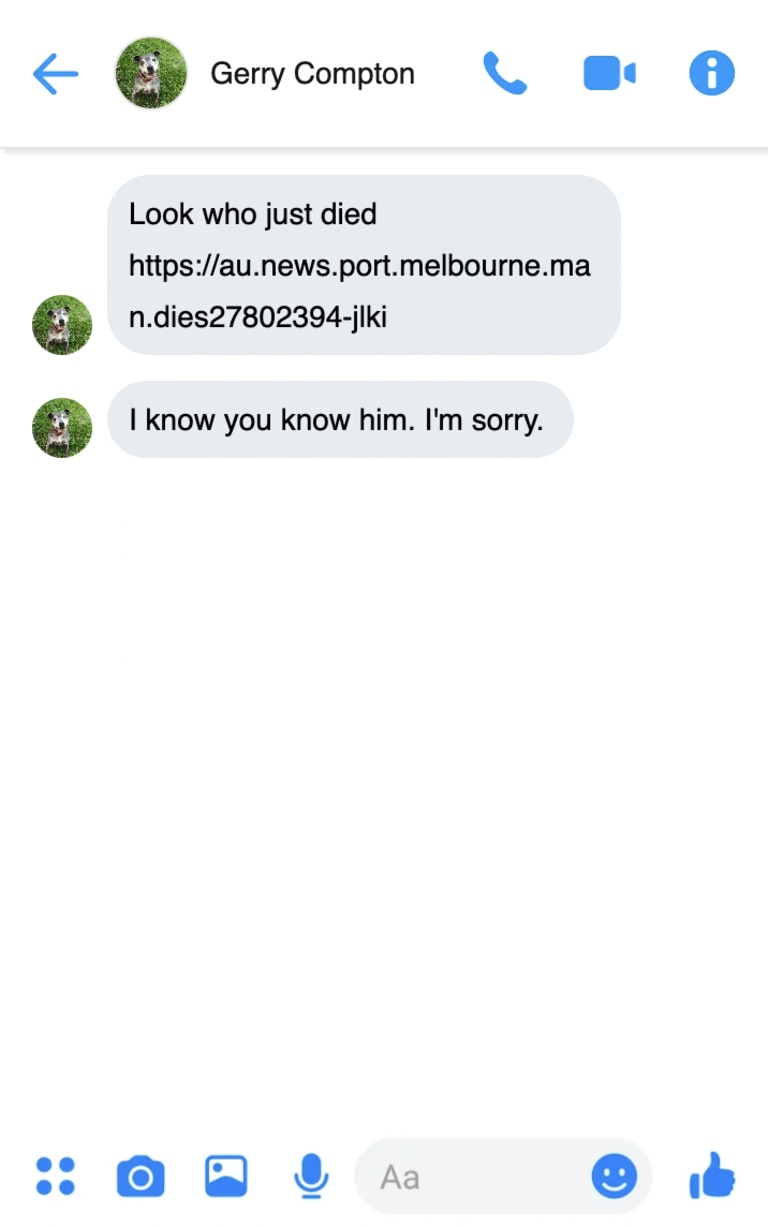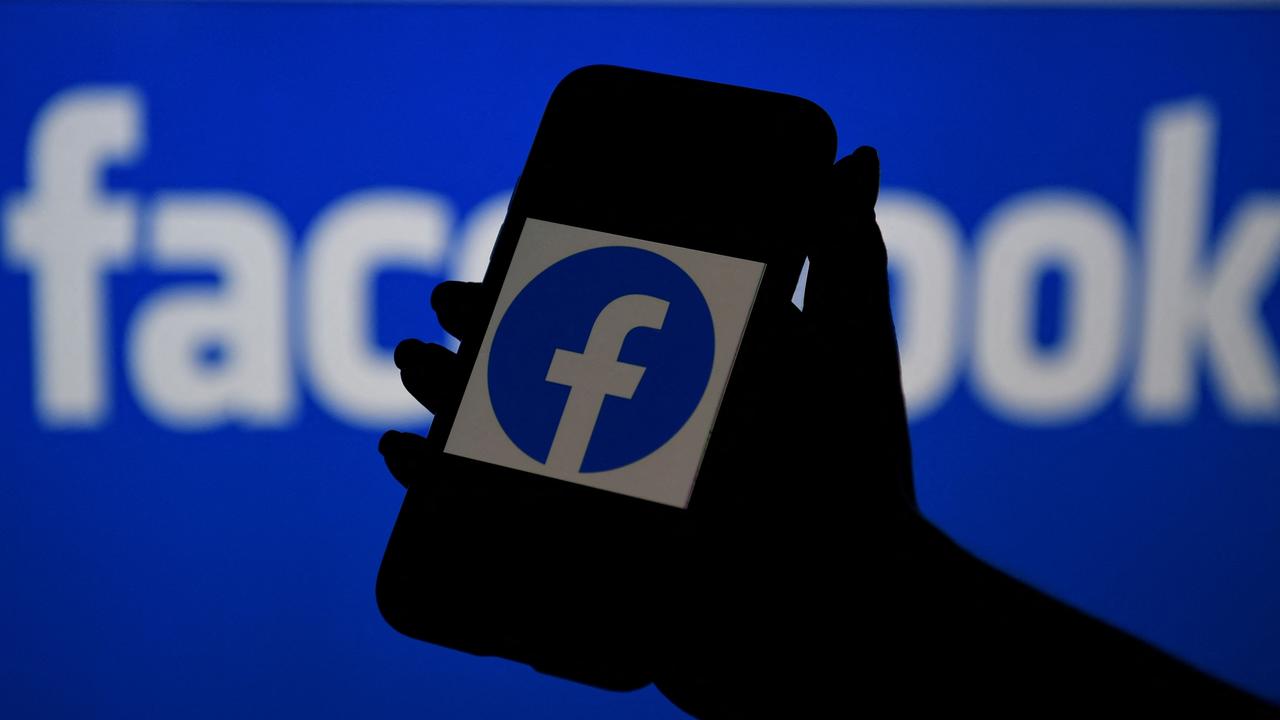Billions of Facebook users warned about ‘look who just died’ scam
Facebook users have been warned about a bank-emptying scam that cleverly targets your morbid curiosity.
Facebook users have been warned about a bank-emptying scam on the social platform that targets your morbid curiosity.
The new scam is one of a host of Facebook ploys used by hackers to hijack unknowing users’ accounts and steal their money and data.
Known as the “look who just died” scam, the ploy begins with a hacker who has hijacked someone’s Facebook account and sends a message to their contacts.
The message reads “Look who just died” and includes a link that appears to open a news story about the supposed death. It may include additions such as “So sad” or “I know you know him” to make the target believe the death was a celebrity or someone close.
Have a similar story? Get in touch — chloe.whelan@news.com.au


A naturally curious target will then click on the link, which contains malware that allows the hacker to gain access to their personal information.
It may ask the target to enter their Facebook log-in details, giving the hacker access to their account so that the scam can continue.
More importantly, if the target has bank details or financial information linked to their Facebook account, hackers can access it and steal their money.
In other cases, the fake news link leads to malware that installs itself onto the target’s computer, where personal photos, passwords and identification documents may be stored.

Experts have warned that the scam is mostly circulating on Facebook Messenger, but it may appear as a text or email instead.
The best advice, experts say, is never to click on any links in messages that appear to be suspicious. A quick conversation with the purported friend should clear up whether they are real or a hacker.
“Malware distributors have gotten increasingly savvy, and you need to be careful about what you download and click on,” the FBI has warned.
Concerned users should aim to keep their devices and software up to date, with any in-house antivirus or anti-malware solutions enabled. Google Chrome, for instance, has a malware detection service that can be enabled via the Settings menu.
If you believe your account has been breached, change your password as soon as possible.

The “Look who just died” scam is just the latest that targets Facebook users.
Earlier this year, Facebook Marketplace sellers were warned about a fake PayID scam that cost Australians $260,000 in 2022.
In that scam, a user who is selling an item on Facebook Marketplace will be contacted by a bad actor who tries to steal money using a fake payment platform.
Have a similar story? Get in touch — chloe.whelan@news.com.au






